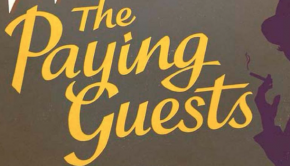The Stories by Jane Gardam
| Press reviews | Buy the book | Have your say |
Blurb: Passion and longing, metamorphosis and enchantment are Gardam’s themes, and like a magician she plucks them from the quietest of corners: from Wimbledon gardens and cold churches, from London buses and industrial backstreets. A mother watching her children on the beach dreams of a long-lost lover, an abandoned army wife sees a ghost at a moorland gate, a translator adrift in Geneva is haunted by the unspeakable manifestation of her own fears, and a colonial servant wreaks a delicious revenge on her monstrous masters. Gardam’s cast is wide and wonderful, saints and mystics, trollops and curmudgeons, yearning mothers and lost children, beloved figures such as Old Filth and less familiar – but equally unforgettable – characters like Signor Settimo, the sad-eyed provincial photographer marooned in Shipley or Florrie Ironside, the ferocious matron he seduces. (Little, Brown, April 2014)
Neel Mukherjee, The Independent
“Structure is another fulcrum around which the short story turns, easily overlooked. In “Telegony”, a collection of three linked stories, about a transgressive love affair in Victorian times, the suppression of that information, and the shadows it casts on the present, is a masterclass in mosaic design. The slightest touch of magic, sometimes in the form of grace, as in the heartbreaking “Easter Lilies”, often brushes against Gardam’s work. The whisper of redemptive uplift that she is generous enough to bring to the end of some of her stories is, above all, truthful. This is a deeply, impeccably humane and pleasurable book.”
Christobel Kent, The Guardian
“Sly, sharp and mischievous, in these stories Gardam chooses precisely society’s quietest and most overlooked characters – the old and shy and sheepish, conservative wives, stay-at‑home mothers and impoverished ex‑colonials, dwellers in cottages and suburban villas – to explore the fiercest passions. She has an extraordinary ability to enter the interior of the long-lived mind and to illuminate history through it; she is particularly fine on that strain of Englishness trained to repress and conceal emotion, and she entitles the most marginal of figures to love, and to beauty.”
Diana Athill, The Telegraph
“Her range is very wide. She reports that L A G Strong advised: “Write about everything – even linoleum”, and she does. Very occasionally one feels that she does so too easily: being witty and sharp can skid into wryness or – once or twice – give a too-neat little twist to a story’s tail. And at the other extreme of her range she loses this particular reader by going too far into fantasy … Gardam could indeed write well about linoleum if she wanted to, but what she excels at is writing about the human heart and mind.”
Libby Purves, The Times
“Sometimes — in the more experimental attempts to write in disjointed voices — the stories left me cool. But many are pure delight. Her particular talent is embedding — quite casually, in half a sentence — a clue to whichever shock is going to mark the end. Sometimes you need to read them twice, but so elegant is the style that it is a pleasure.”
Amanda Craig, The Independent
“Why aren’t the magazines and news- papers which claim to champion the form, clamouring to publish them? She is easily the equal of Katharine Mansfield, Alice Munro and Helen Simpson, but strangely obscure in this country, despite winning the Costa/Whitbread prize twice, being short-listed for both the Booker and the Orange and holding the Heywood Hill Prize for a lifetime contribution to the enjoyment of literature. Perhaps it’s because she has the Austenesque quality of being satisfying and disquieting, conventional and experimental, and is much more artful than she appears.”
Lindsay Duguid, The Sunday Times
“Gardam’s narratives are sharp and disconcerting. The prose is plain and strong with short, informative sentences and long sections of dialogue. The tone is intimate and confiding, at times resembling that of the garrulous women who retell an old tale, and the well-structured plots often enact a poetic justice.”
David Bradbury, The Daily Mail
“Characteristically, she allows them to speak for themselves in extensive conversations while she is ready to puncture their pretensions with narration in her characteristically staccato sentences.“
Cressida Connolly, The Spectator
“In the finest of these stories the division between things, between generations or classes or old lovers, melts away for a little time, or is torn. It is Jane Gardam’s particular gift to be able to shine a light through these unexpected peepholes, straight into the human heart. Despite the definite article, these are not all the short stories she has ever produced, but a selection of her own choosing. Some are very much better than others, but the good ones are marvellous. “
Hannah Britt, The Daily Express
“Gardam writes with wit, harnessing an expert use of dialogue to bring her characters to life. This is illustrated when she writes phonetically in the darkly humorous The Great, Grand Soap-Water Kick.”
Buy the book
Amazon | Foyles | Hive | Waterstones
OMNISCORE:












